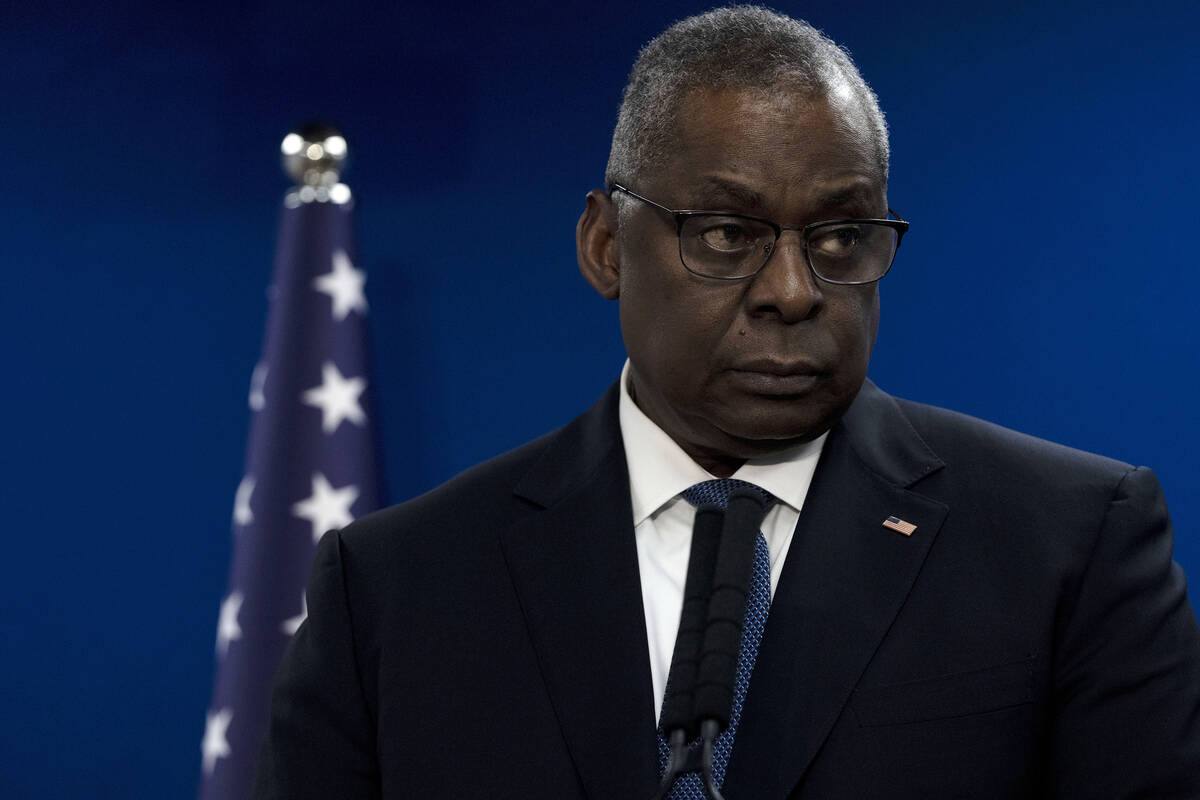EDITORIAL: Where’s the defense secretary? Who knows?

It was a page from the authoritarian state playbook: A high-ranking government official falls ill, yet the development is kept under wraps. Questions swirl about his whereabouts and condition.
Yet this wasn’t the old Soviet Union or modern-day Cuba or North Korea. This was the White House and a key Cabinet member.
Over the weekend, news trickled out that Defense Secretary Lloyd Austin was in intensive care at a Washington hospital after suffering complications from a previous surgery. Americans no doubt wish him a full and speedy recovery.
Yet his handling of the situation was bizarre and inappropriate. According to The Wall Street Journal, Mr. Austin was hospitalized on Jan. 1 but failed to let anybody know. His second in command wasn’t informed until three days later, when the president and his team first learned of the development. The following day — last Friday — members of Congress heard the news, and the Pentagon issued a formal release.
There’s no indication that any of this put American security at risk. But it potentially undermines public trust in the Pentagon that it would seek to keep such information, not only from the American people, but from the White House and Congress. And what does it say about this administration’s national security protocols?
“I recognize I could have done a better job of ensuring the public was appropriately informed …” Mr. Austin said in a statement. “I take full responsibility for my decisions about disclosure.”
A civil-military affairs expert at Duke University told The Washington Post that the secrecy was “baffling,” adding that “the president has a legitimate right to know where his Cabinet officers (are) and how to reach them at all times.”
President Joe Biden ran on a promise of bringing transparency and trust to the federal government. A month into his presidency, he issued a memo declaring that, “The revitalization of our national security and foreign policy workforce requires a recommitment to the highest standards of transparency.” He harps daily about how his potential opponent this November is a danger to “democracy.” So are government officials who seek to deceive the people they serve.
“This is not a minor miscommunication,” a former member of the Obama administration told USA Today. “It’s about the confidence that our national security structure has in its leadership and that the leadership is acting in a transparent way.”
Apologists for Mr. Austin note that he is an intensely private person who keeps a low profile. There’s nothing wrong with that. But in this case, he used extremely poor judgment. Lawmakers of both parties are demanding an explanation for the secrecy. When he has fully recovered, Mr. Austin has much to explain.